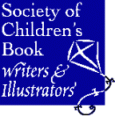I recently had the pleasure of interviewing writer CJ Darlington about her breakout debut novel, Thicker Than Blood. I’ve known CJ for years through various writer’s groups and comment threads, such as Terry Whalin’s The Writing Life and Gina Holmes’ Novel Journey, so holding her book in my hands for the first time was like cradling a precious newborn. Her book is absolutely gorgeous and a stunning read, which I highly recommend if you are a book collector and lover of all things literary!
The plot centers around the theft of a first-edition Hemingway, For Whom the Bell Tolls, one of my favorite novels. I hope you’ll visit CJ at her website and read the story behind the story about how she got her first book contract through Tyndale by winning a writing contest! Dreams do come true!
 Welcome, CJ! Since you were homeschooled by your mother, can you tell us how she encouraged you to become such an avid reader and writer?
Welcome, CJ! Since you were homeschooled by your mother, can you tell us how she encouraged you to become such an avid reader and writer?
Mom never said one negative word to me about pursuing writing. Everything was always positive. And still is, I might add. She took the time to notice my interests and provide all the necessary tools. That’s what she believes is so important for homeschooling moms to do. It’s a parent’s job to water the dreams of their kids, not to impose their dreams on their children.
My parents never hesitated to take my sister and me to the library, and they never complained when we came home with bags and bags full of books. Mom created curriculum around our interests. She made sure we read some of the classics like The Scarlet Letter, The Old Man and the Sea, Huckleberry Finn, To Kill a Mockingbird, and the like.
Oh, those are some of my favorite books too! Anything else?
She also had us keep a journal from an early age, making sure we knew she wasn’t going to read them (she felt this was important to tell us up front). She just wanted us to be creative and write without editing. I still journal to this day.
And she made us learn how to type! Of all the things I learned homeschooling, that’s one thing I use every single day.
Your mom sounds amazing! Do you have any words of wisdom for today’s moms who want to teach their kids to love books, despite all the competing media and demands for kids’ time?
It’s one thing to tell your kids to read, it’s another to read out loud to them. By doing this, you’re practicing what you preach, and you get some great quality time with your kids. This opens up the door to discussing what you read too.
Books are doorways into countries we might never explore in real life. Through books we can travel to worlds beyond the solar system. We can learn history and how not to repeat it and discover what character traits were noteworthy in others. Through reading we learn without even realizing it.

You started writing your novel when you were 15, and you describe your long 14-year journey to publication. What would you say to a teen writer who dreams of publishing books someday? Is there anything he or she can be doing now to prepare for a life as a professional writer?
First of all, know that if you have a dream to be a writer, that dream is valid and most likely comes from God. Being a writer is a very important calling. God took the time to write His thoughts on paper. I don’t think he would have done that if there was a more powerful medium.
Read lots of different authors. Yes, write whenever you can (writers write after all), but when you’re reading you’re learning by osmosis how other authors have mastered the craft. Subconsciously you’ll pick up techniques.
Don’t give up. Determine that no matter how long it takes to reach your goals, you’re not letting go of your dream. Maybe you’ll read another author and start to wonder how you could possibly write like him or her. Or someone will say something critical about what you wrote, and the words will cut deep. That’s not the time to push the keyboard or pen away! Keep at it. Even when the words don’t seem to flow.
Then, don’t be afraid to start submitting to publications. But don’t be discouraged if the rejections come. Often an editor will reject a piece simply because they don’t have space or they’ve published something similar recently. It doesn’t mean they’re rejecting you or that your writing isn’t publishable. My first novel was rejected by almost all the major Christian publishers before it finally found its home at Tyndale House.
This all sounds like great advice! One last question: Are there any writing courses or programs you’d recommend for teens who love to write? Also, do you know of any publications that accept short articles or stories from teens that may help them build up a writing resume of clips?
The Christian Writers Guild has several courses designed especially for young writers. If you learn best through courses and programs, I highly recommend them. The staff there are amazing and supportive. Their website has all the info.
But if you’re more unstructured (like I am), it is possible to succeed as a writer by learning on your own too. There are so many great how-to books and magazines out there that can teach you everything you need to know. One of the first things I did when I was starting out was subscribe to Writers Digest and The Writer magazines. They’re also available at most libraries. Read Plot & Structure by James Scott Bell and A Novel Idea by Chilibris. They’re great books on the craft to start with, but then there are so many others as well.
A great resource for finding magazines and websites that accept articles and stories is The Christian Writers Market Guide by Sally Stuart. It’s a valuable reference tool you’ll turn to again and again. My very first short story was accepted for publication when I was 18, and it was published in a Sunday School take-home paper called Live. The take-home papers can be a great market.
Thank you so much for all of your encouragement, CJ! And to all of you aspiring writers out there, be sure to visit CJ at her other home on the web, TitleTrakk.com, where she reviews books, movies, music and other inspirational media.








 Welcome, CJ! Since you were homeschooled by your mother, can you tell us how she encouraged you to become such an avid reader and writer?
Welcome, CJ! Since you were homeschooled by your mother, can you tell us how she encouraged you to become such an avid reader and writer? 